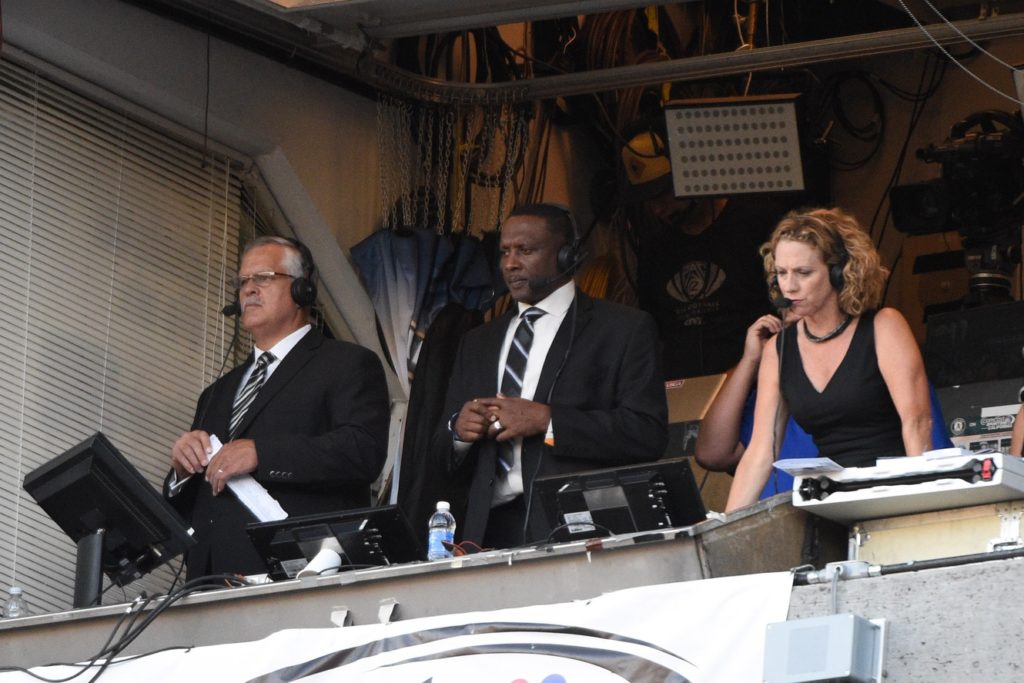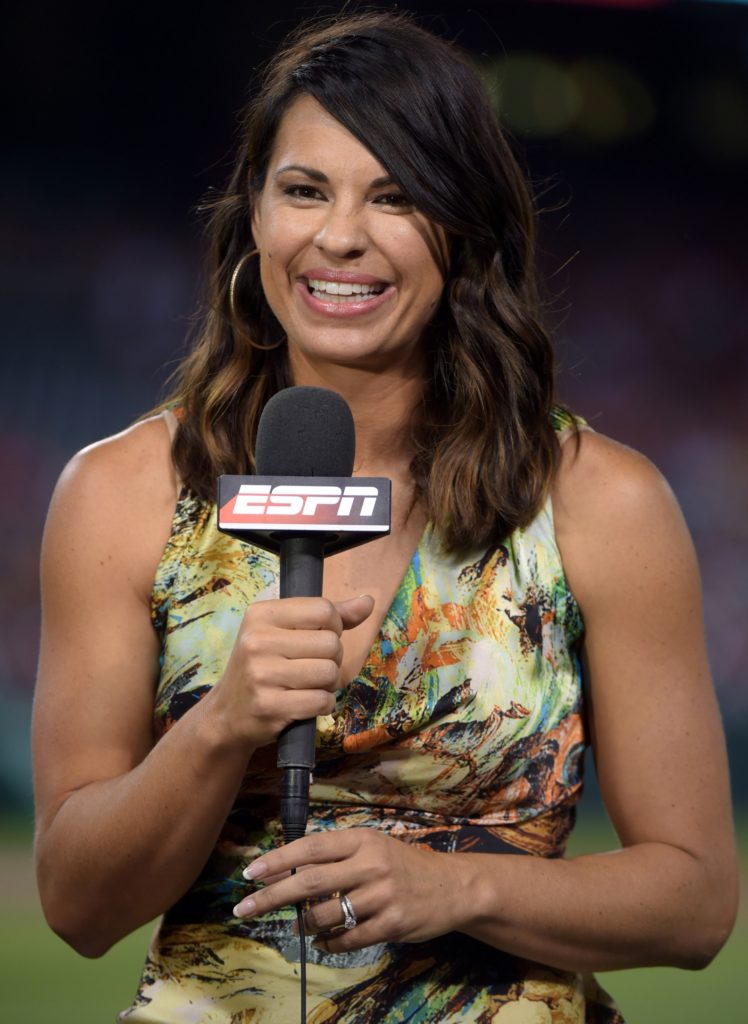Ad Disclosure
ESPN Won’t Wait for You to Get Enlightened

It was the Sergio Dipp implosion that really brought things into focus.
ESPN is going to drag us all into the 20th century – not the 21st century, the 20th century. It’s a decade or so late, whether we like it or not.
This was Dipp’s ESPN debut on Monday Night Football:

It was halting, it was awkward, and it was, without question, a labor for him.
But if you listen without prejudice, the message is pretty clear: Vance Joseph is the new head coach of the Denver Broncos, which, given that he’s an African-American, is no small accomplishment.
Joseph rose through the patriarchal and overwhelmingly white ranks of American football. After playing two years in the NFL, he coached at three different universities before landing a supporting role in the professional game. He then toiled for four different organizations (San Francisco, Houston, Cincinnati, and Miami) before finally being given the chance to be the number one guy in Denver.
That hill Joseph climbed bears no resemblance to Doug Pederson’s ascension to his current position as head coach of your Philadelphia Eagles.
Dipp delivered that message plainly, if incompletely. He didn’t do it with the ease and confidence that comes from being a native English speaker. That’s not surprising given his background.
“Dipp, a bilingual 29-year-old from Baja, California, has been with ESPN Deportes since 2013,” was noted in a Chicago Tribune reaction.
The blowback following Dipp’s Monday night appearance, chronicled harshly by the New York Post and so many other “traditional” media outlets, is merely an extension of the difficulty the average (i.e., Caucasian, middle-class, 18 to 49-year-old male) sports consumer, or sports talk radio host, has with the irresistible force of change. Even if Dipp’s sideline report was substandard — OK, poor — it’s hard to imagine a similarly lacking effort from a hot blonde woman or a young white guy temporarily breaking Twitter like Dipp did.
ESPN has taken a beating in media circles for the purge it ruthlessly executed on so many standard Caucasian voices in the past six months. “Ed Werder is great at his job!” “Jayson Stark knows more baseball than anyone!” “I liked Danny Kanell with Ryen Russillo!” Gone, gone, and gone, plus many more.
Concurrently, but perhaps not coincidentally, ESPN has made bold moves in the past year.
The 6 p.m. version of SportsCenter, the network’s flagship show, was handed over to youngish African-American talents Michael Smith and Jemele Hill and forcefully repackaged as “The Six.” Jessica Mendoza was installed as one of the voices of “Sunday Night Baseball.” And, just this week, Beth Mowins became the first woman to broadcast an NFL game in the United States in 30 years.
Thirty years.
A generation.
Predictably, for every voice that has praised the Worldwide Leader for its progressive efforts, there are hot takes suggesting that ESPN has undercut its brand in an effort to bring more people into the tent.
It simply isn’t true.
Nobody – NOBODY – gets a microphone and a camera angle at a place like ESPN without having put the requisite time in.
As noted earlier, Dipp worked for ESPN Deportes for four years before appearing on MNF this week. Mendoza, picture above, won two Olympic medals and three World Championships as a softball player before joining ESPN in 2007. Mowins began working with ESPN in 1994, calling “NCAA championships in basketball, softball, soccer, and volleyball – not to mention countless high profile college football games” before getting this week’s career-defining chance.
It takes a brittle, stinting heart to wish failure on these new voices. And whether you appreciate it or not, ESPN’s pivot to inclusion is really just good business.
That Caucasian, middle-class, 18 to 49-year-old male demographic, the one that has habitually and blindly bought cable packages (including ESPN) for decades, is either in transition at the low end or heading for extinction at the high end.
As noted previously by this very site, cord-cutting is real, and content producers like ESPN cannot just systematically program a wave of middle-aged Caucasian anchormen and color commentary guys ad infinitum while relying on the market to keep saying “that’s okay.”
That market is now being rightfully influenced by African-Americans, by Latin-Americans, and by Asian-Americans, and many of them are women. It’s only common sense to think that these paying customers would at least occasionally prefer to receive the content they are paying for from people and voices they can identify with.
If it makes you happy, you can continue to resist the influx of new and previously underexposed voices in your sports commentary and delivery.
You probably already know this. ESPN and other forward-thinking networks are not going to stop introducing new, diverse talent just because that’s what you say you want.
Formerly a Featured Columnist on the Philadelphia Phillies and Manchester City Football Club for Bleacher Report. Full-time attorney, part-time pundit. Follow me @philkeidel on Twitter.
